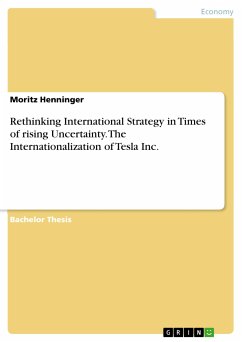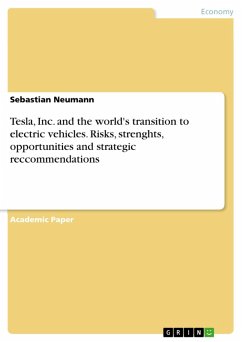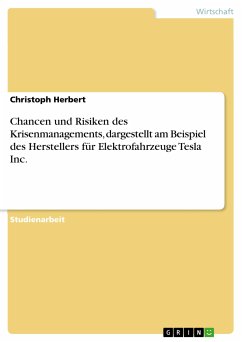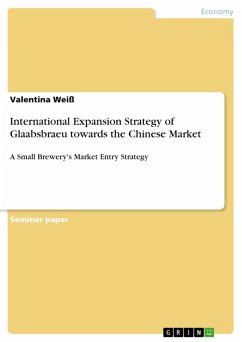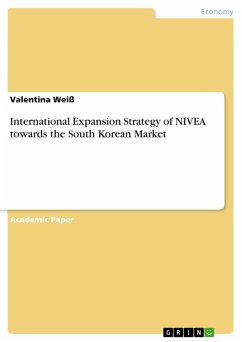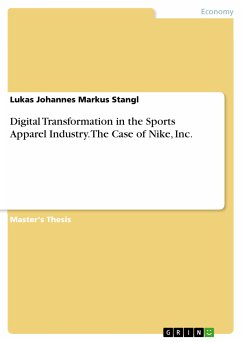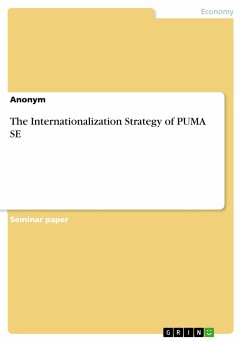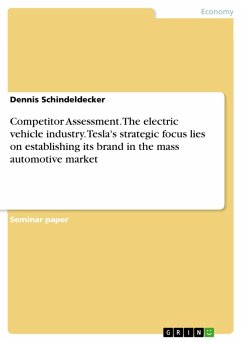Bachelor Thesis from the year 2020 in the subject Business economics - Business Management, Corporate Governance, grade: 1.3, University of Stuttgart (Institute for International and Strategic Management), language: English, abstract: This paper hopes to answer how increasing uncertainty is impacting International Management and how new and innovative companies like Tesla Inc conduct international expansion. Economic activities in the 21st century, are characterized by dynamic global competition, the increasing interdependence and internationalization of economic relations and the resulting merging of world markets. With the continuous expansion of world trade and investment, with factors of production being highly mobile, and with the sources of innovation becoming increasingly global, an increasingly larger share of the global economy is reasonably accurately characterized as "open" it est as being exposed to the forces of global competition, and to the international flows of capital, technology and skilled labor. Yet, the belief in globalization and free trade seems to be in disarray since the shocks of Brexit and Trump in 2016. In various regions of the world, a flare-up of nationalism, protectionism and trade barriers is creating a politically and economically volatile atmosphere. While 2019 and 2020 brought new obstacles - from customs tariffs to a global pandemic - this has led to a shift in framework conditions rather than an end to international competition. In addition, a lot of companies across various business sectors are entangled in extensive and expensive investment or restructuring programs brought upon by the ever-increasing pace of technological, sociological and legal developments. Still, there is uncertainty if these investments will one day pay off or turn out the be a charge in the wrong direction. Between 1970 and 2018, FDI grew from 14.2 billion to 1.43 trillion US dollars, an increase of over 900 percent. Based on this rapid development, participation in international competition has become a matter of course - if not a necessity - for many companies, and their attention is focused on efficient conduct and value-adding administering of international activities. This begs the question how internationally active companies with a global and decentralized value chain can fight rising uncertainty and react to constantly changing environments? How can these companies not only hold on to existing business but expand their dominance in the market against the backdrop of uncertainty? Are established strategy models such as Ghemawat's AAA model still applicable today, do they need to be revised or is there even a need for completely new approaches?
Dieser Download kann aus rechtlichen Gründen nur mit Rechnungsadresse in A, B, BG, CY, CZ, D, DK, EW, E, FIN, F, GR, HR, H, IRL, I, LT, L, LR, M, NL, PL, P, R, S, SLO, SK ausgeliefert werden.

